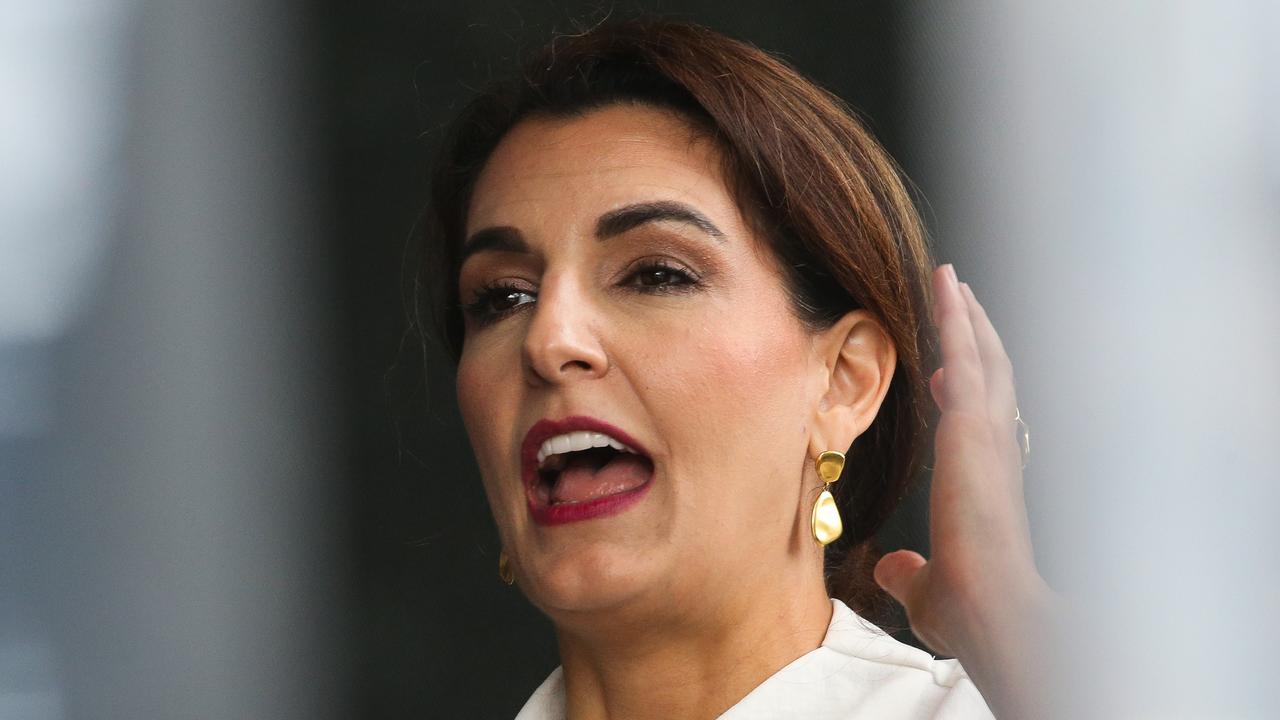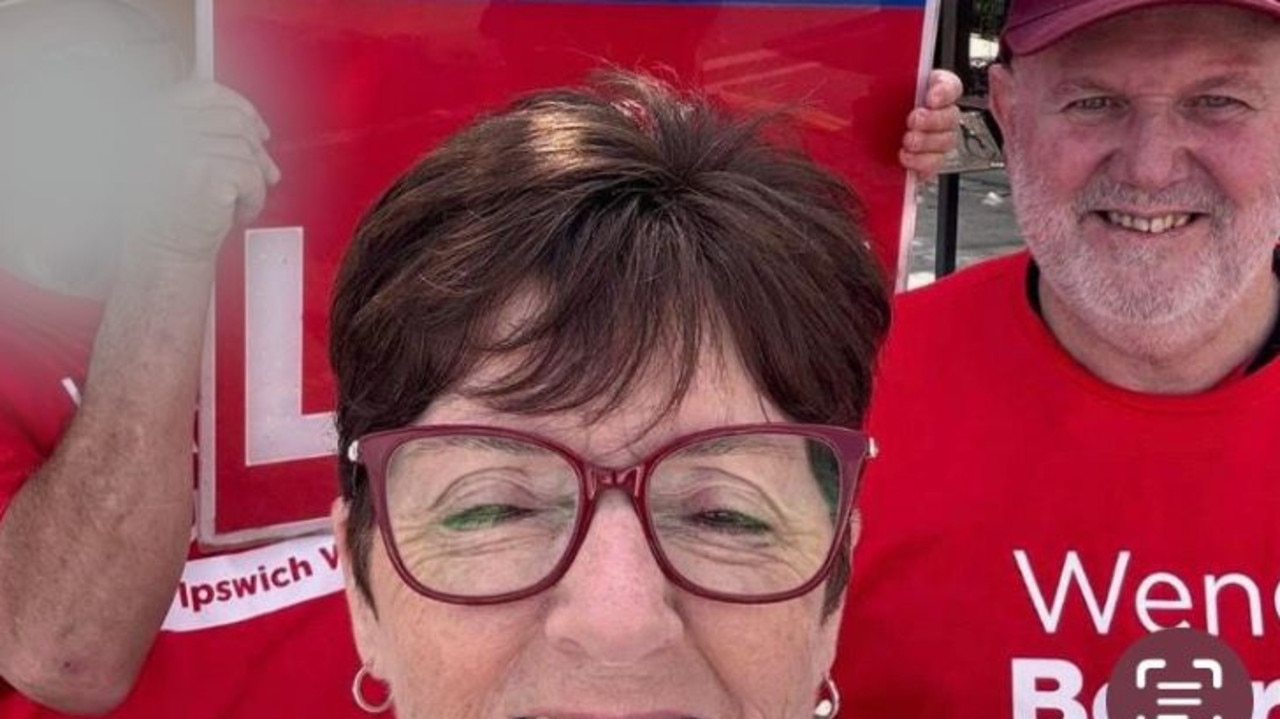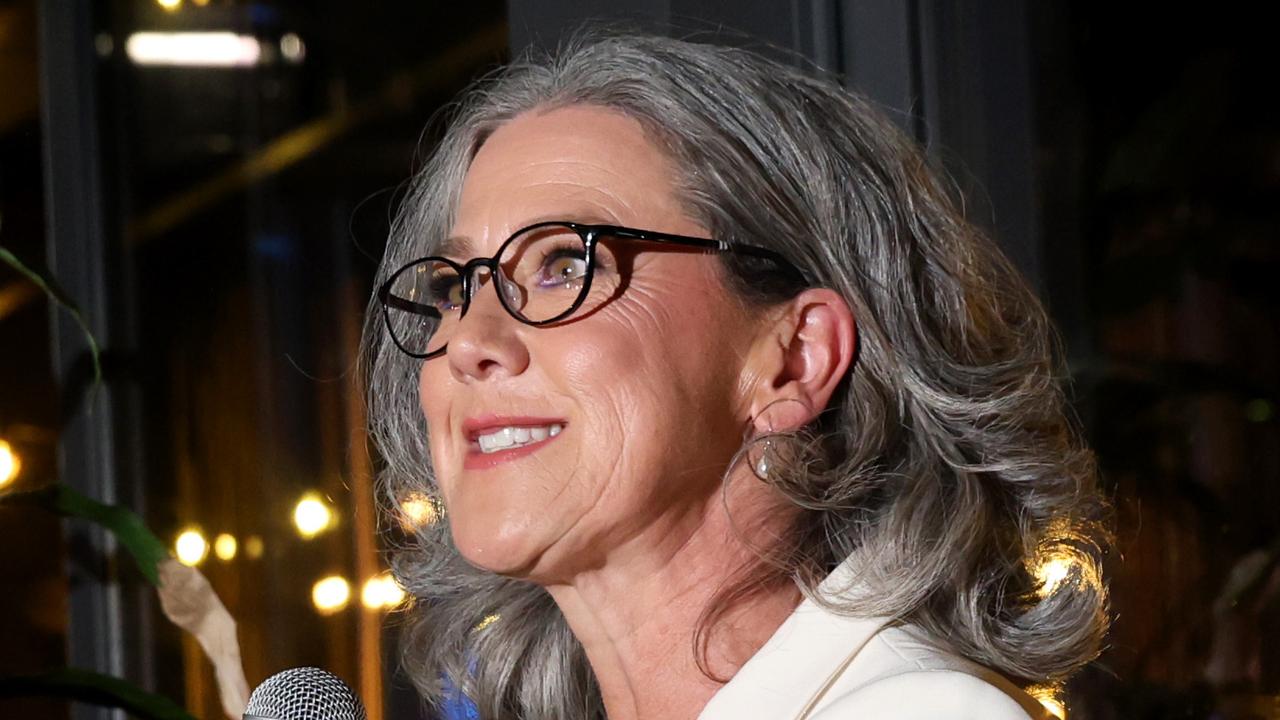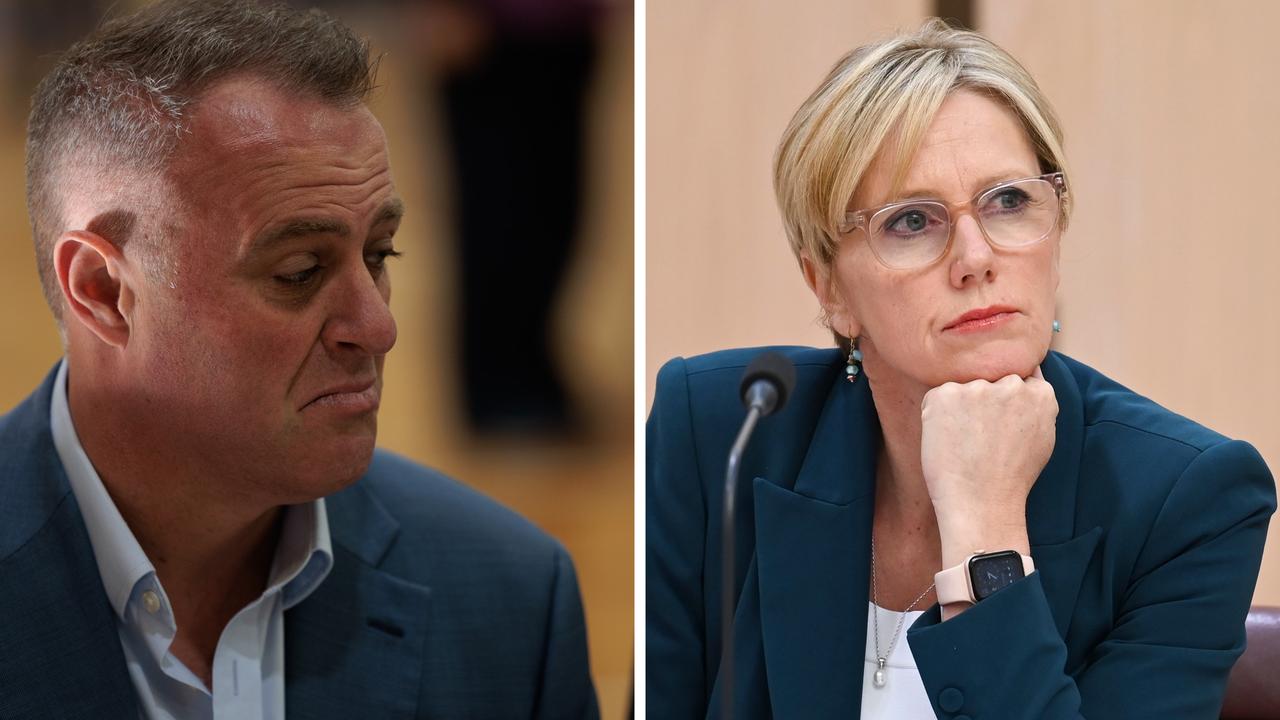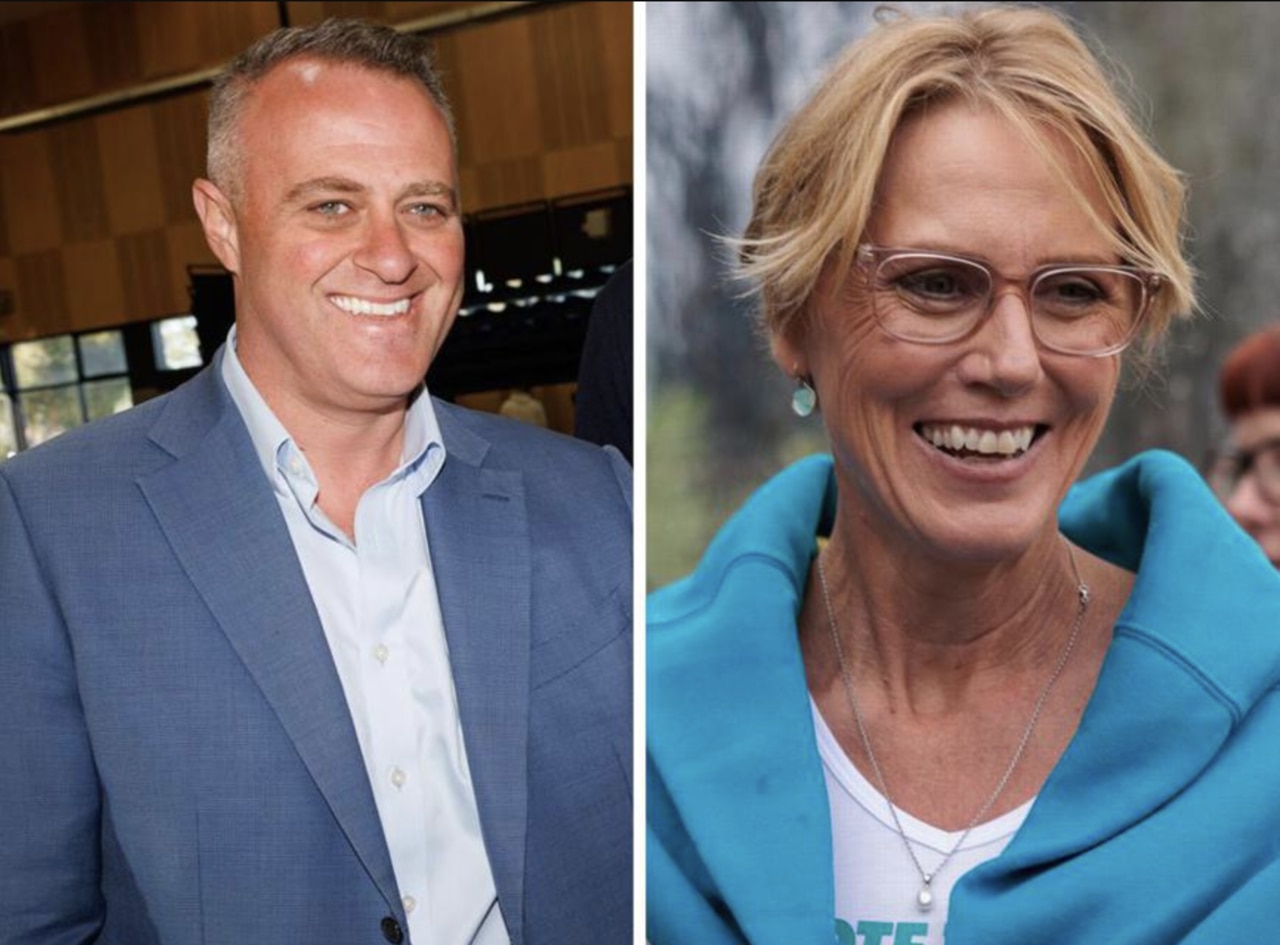Australia’s next PM warned of how to deal with Donald Trump after tariff announcement
As global recession fears loom after Donald Trump’s tariffs that will hurt Australian households, our next prime minister has been warned on how to handle the US President.
Federal Election
Don't miss out on the headlines from Federal Election. Followed categories will be added to My News.
Donald Trump’s tariffs risk a global recession that will hurt Australian households more than his direct hit on exports, with a top economist urging the nation’s next prime minister to hold a “very tough line” and not give up “too much” to appease the US President.
Australian beef, wine and timber are among the industries that will suffer the most from a 10 per cent tariff slapped on all exports to the US, excluding pharmaceuticals and some critical minerals, by the Trump administration on Thursday.
The “liberation day” announcement sent financial markets into freefall and dominated the sixth day of the federal election campaign, as Anthony Albanese and Peter Dutton both positioned themselves as best-placed to respond.
The Prime Minister announced a five-point package to help farmers and businesses find new markets to sell to, including by opening up $1 billion in interest-free loans.
The Opposition leader criticised Mr Albanese for failing to secure a third phone call with Mr Trump ahead of the tariff announcement, and insisted a “deal can be done” with Mr Trump if the right inducements in critical minerals and defence manufacturing are offered.
But assistant professor of economics at George Washington University Steve Hamilton told this masthead Mr Albanese and Mr Dutton should not “overstate” the direct impact of the tariffs and instead preserve Australia’s interests.
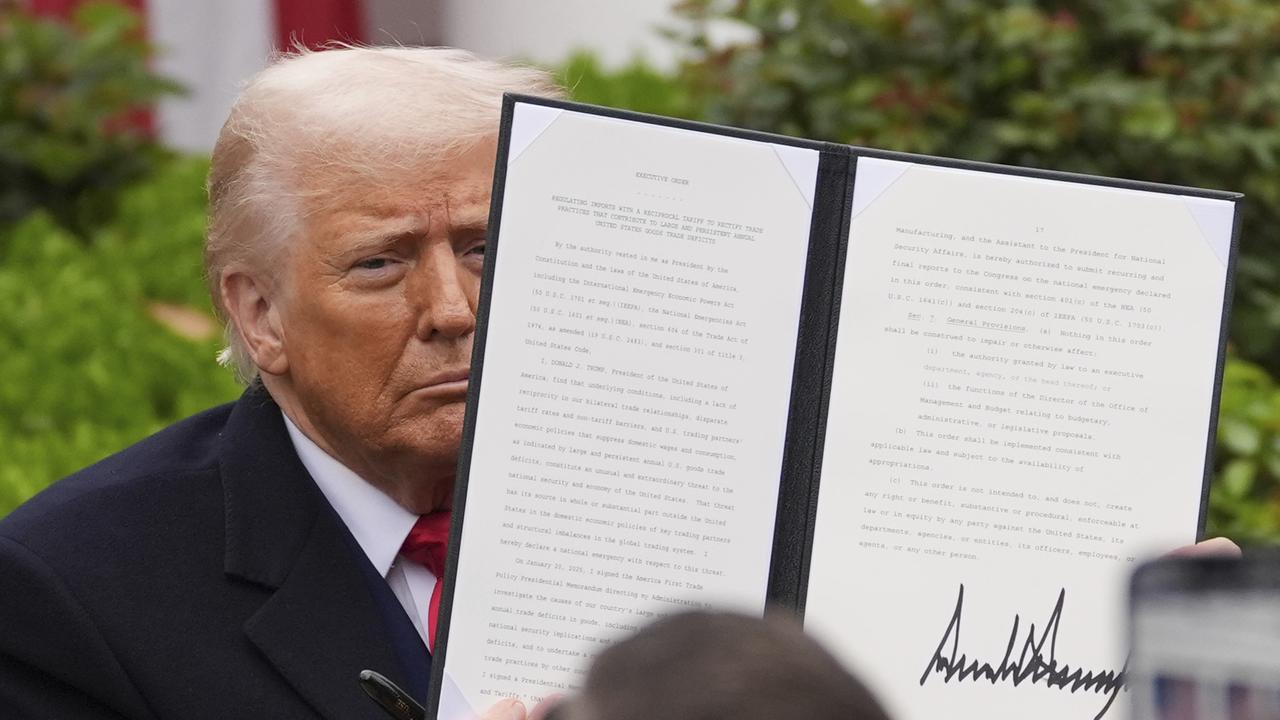
“It’s very important that whoever is the prime minister over the coming months holds a very tough line because it’s just not worth it to us to give up things that we value too much,” he said.
Prof Hamilton, who is an Australian based in Washington DC, said the direct effects of the tariffs, were “trivial in the scheme of the Australian economy,” but that did not mean households and small businesses would escape pain.
“Our major trading partners in Asia are being hit extremely hard with the tariffs, and that will cause a slowdown in those countries that will cause a drop in demand for our major resource exports, so that’s obviously bad,” he said.
“And if the US gets tipped into a recession as a result of this, that would be a big economic shock that will potentially lead to a global recession and impact Australia.”
China was hit with a 32 per cent tariff, while Vietnam was whacked 46 per cent.
Mr Trump singled out Australia’s restrictions on beef imports, in place since mad cow disease scares more than two decades ago, in his speech.
“Australia bans – and they’re wonderful people, wonderful everything – but they ban American beef,” he said.
Prof Hamilton said he believed there was “absolutely nothing” Australia could have done to avoid the tariffs entirely, and people should not “expect” an exemption will be achievable.
Given this, he said Australia “shouldn’t be willing to give up too much in order to avoid” the import taxes.
Prof Hamilton said the one “silver lining” could be that countries hit hard with tariffs like Vietnam, China, Japan and South Korea may end up with a “glut” of goods, that are then sold cheaply into Australia.
“That would be very helpful with inflation … and reduce interest rates,” he said.
Prof Hamilton said Australia could consider amending at its tough biosecurity laws that restrict the import of US beef due to the presence of mad cow disease in America more than 20 years ago, but only if it proved “good policy” rather than to simply satisfy Mr Trump.
The Albanese Government had been expecting the tariff announcement, after key figures in the US had indicated Mr Trump’s preferred course of action was to offer no exemptions to any country.
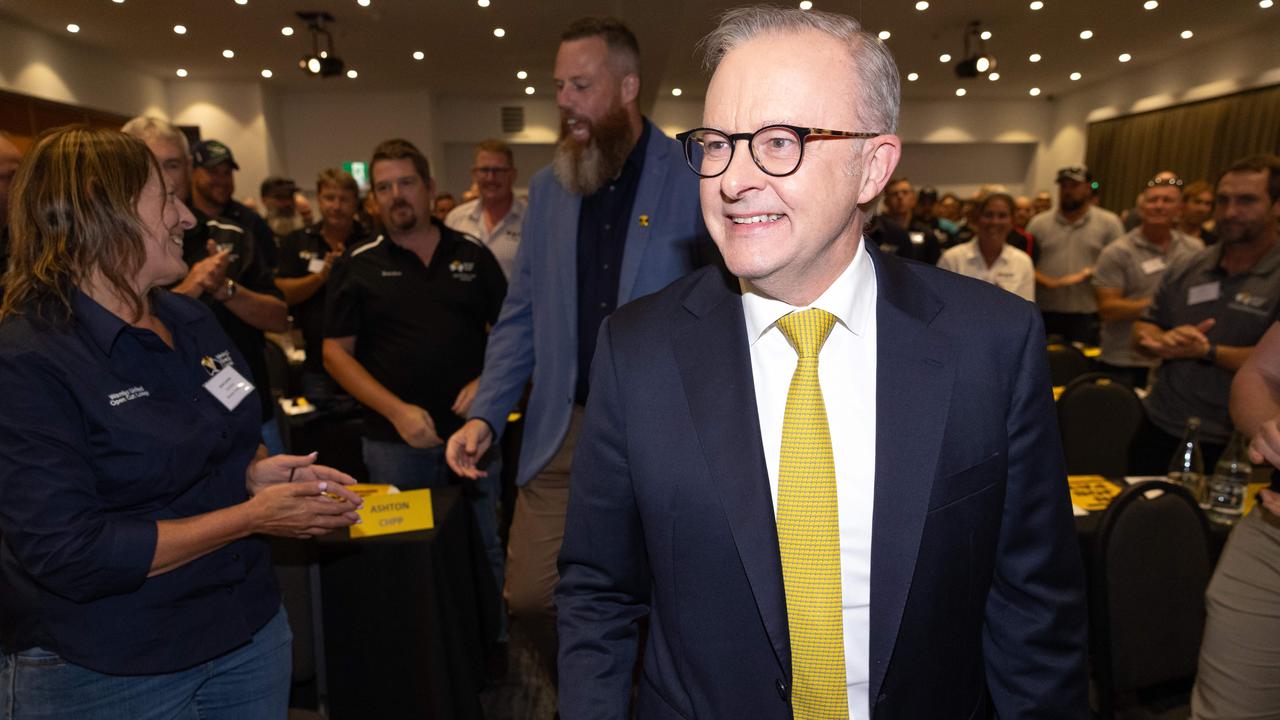
No nation received a lower tariff rate than Australia, which a source familiar with the weeks of intense lobbying and talks with the US said was notable.
Even leaders considered particularly friendly with Mr Trump, like India’s Narendra Modi and Israel’s Benjamin Netanyahu, were whacked more than Australia, receiving tariff rates of 26 per cent and 17 per cent respectively.
It is understood Australia’s ambassador to the US Kevin Rudd had been in talks with US Commerce Secretary Howard Lutnick, several other cabinet members and the national economic council in America, while talks were also ongoing at a ministerial, bureaucrat and private industry level.
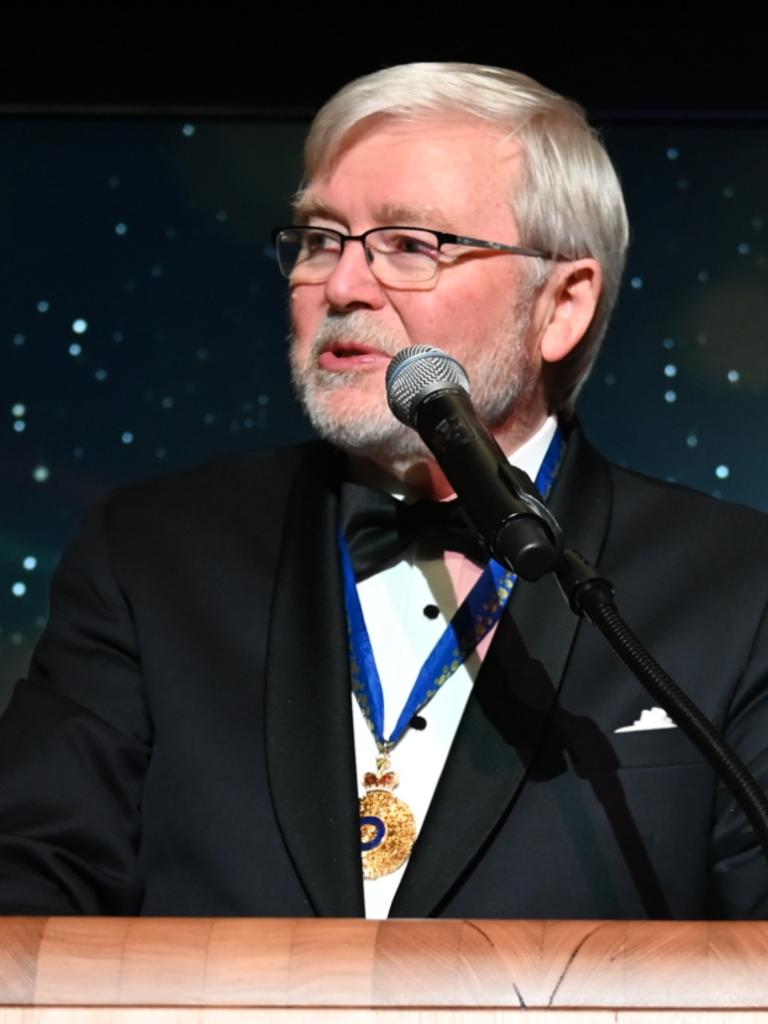
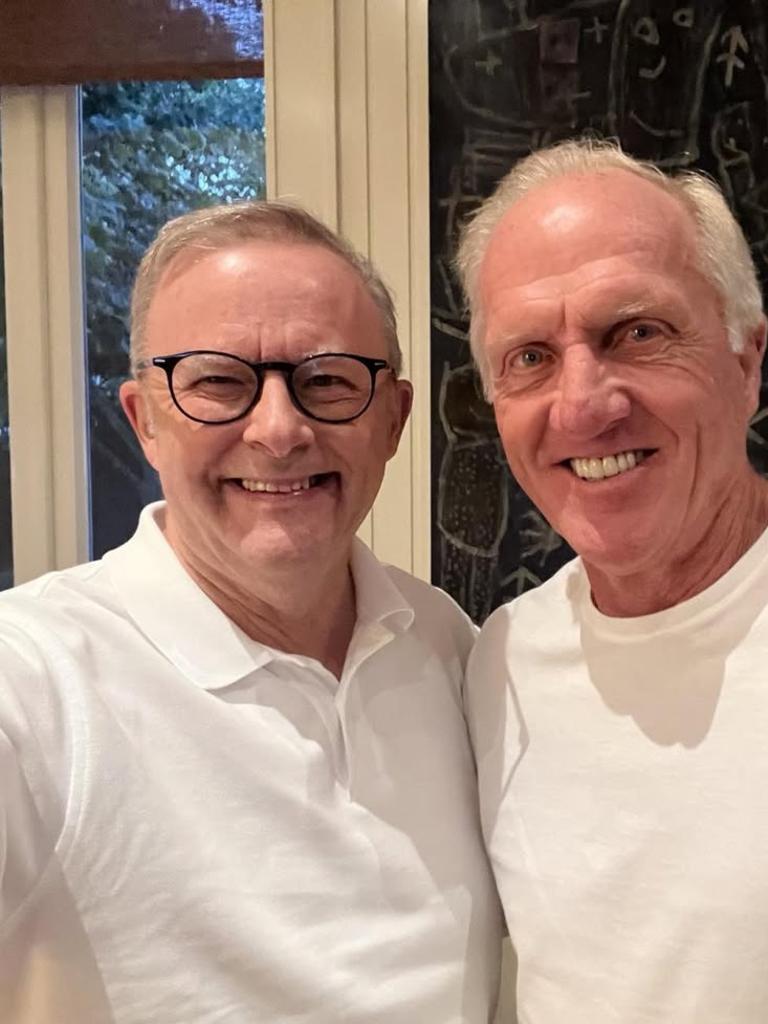
Mr Albanese even recruited Australian golfing great Greg Norman, who famously friendly with Mr Trump, to the cause of advocating on the nation’s behalf.
The PM said Mr Trump’s actions were not that of a “friend” and a true reciprocal tax on Australia would have been “zero” as there are no tariffs on US goods.
“We are using every asset at our disposal … to advance Australia’s national interests,” he said.
Mr Dutton said if elected leader on May 3, he would “leverage” Australia’s defence industry and critical minerals in future talks with Mr Trump.

“I think there is opportunity for us to take what is a bad decision, and it’s a decision I’m dead against that’s been made by the President, I want to turn that into an opportunity for our country,” he said.
More than $55bn was wiped off the Australian stock exchange as the tariffs, which take effect from April 9, were announced.
Australia’s biggest exports to the US are worth about $7bn, which includes about $2.5 billion worth of frozen beef exports, $359 million in wine and $205m in timber products.
More Coverage
Originally published as Australia’s next PM warned of how to deal with Donald Trump after tariff announcement




